Ancient Philosophy in the University of London
Over the last half century, the University of London has established itself as a major centre for the teaching and research of ancient philosophy. But the study of ancient philosophy goes back much further, all the way to the foundation of the institution.
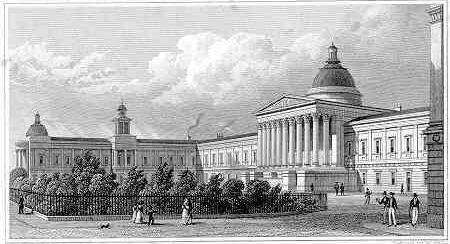
What we know now as University College London (UCL) was founded as the first ‘University of London’ in 1826 and opened to students in 1828. It was quickly followed by King’s College (KCL), founded in 1829. In 1836 the central University of London was founded as a federal institution and given its royal charter, awarding degrees to students studying at both UCL and KCL. Further colleges soon followed, also preparing students for University of London degrees. These included Bedford College, Birkbeck College, Royal Holloway College, and Queen Mary College, among others.
One of the founding figures of both UCL and the federal University of London was George Grote, a member of the original founding council of UCL in the 1820s. Later, after time as an MP, he went on to become Vice-Chancellor of the University of London (1862-71) then Treasurer and President of UCL (1868-71). Grote produced two substantial works on ancient philosophy: Plato and Other Companions of Sokrates (1865) and Aristotle (1872), as well as offering an important, revisionary account of the Sophists in his History of Greece (1846-56). He has been described as the greatest Plato scholar of the nineteenth century.
The founding Professor of Greek at UCL was George Long (1828-31), who later held the Chair in Latin (1842-46). He is remembered for his translations of Marcus Aurelius (1862) and Epictetus (1877). Among the first students at UCL, William Smith won prizes in both Greek and Latin, and went on to become a Professor in the University of London himself. In 1840 he produced an edition of selected dialogues of Plato (The Apology of Socrates, Crito, and Parts of the Phaedo).
At KCL, J. B. Mayor was Professor of Classical Literature (1870-79) and then Professor of Moral Philosophy (1879-82). As well as writing a short history of ancient philosophy (A Sketch of Ancient Philosophy from Thales to Cicero 1881), a work that was reprinted multiple times, he produced a substantial edition of Cicero’s On the Nature of the Gods (1880-85).
Back at UCL, J. A. Platt was Professor of Greek (1894-1925). As well as writing on Plato, he contributed a translation of Aristotle’s On the Generation of Animals (1912) to W. D. Ross’s multi-volume The Works of Aristotle Translated into English.
Ernest Barker (1874-1960), remembered for his work on the political philosophy of Plato and Aristotle and his translation of Aristotle’s Politics, was Principal of KCL from 1920 to 1927, although the inevitable demands of that role meant that much of his scholarly output occurred either earlier in his career, at Oxford, or later when he moved on to Cambridge. Around the same time, E. R. Bevan was also at KCL, 1922-33, writing about ‘Hellenistic Popular Philosophy’ (1923), having earlier written one of the first modern works on Hellenistic philosophy in English, Stoics and Sceptics (1913).
One of the beneficiaries of the University of London’s relatively inclusive ethos was Dorothy Tarrant. Despite attaining first class results in Classics at Cambridge, she was denied a degree, which were not then awarded to women. From the University of London, however, she was able to attain a BA, MA, and later a PhD. She remained in London at Bedford College, joining in 1909 and rising to become Professor of Greek (1936-50). She was the first woman to hold a Chair in Greek in the UK. Tarrant worked primarily on Plato and produced among other things an edition of the Hippias Major (1928).
The School of Oriental Studies was founded in 1916, later (1938) to be renamed the School of Oriental and African Studies and so change from SOS to SOAS. Over the years, SOAS was to be the home of much scholarship on the philosophical traditions of these regions, extending back into the ancient world. Two years after its foundation, SOS appointed as Lecturer in Japanese and Chinese the young American scholar William Montgomery McGovern, who went on to gain much fame and notoriety as an adventurer, war journalist and soldier, as well as an anthropologist. It was during his time at SOS and one year after he travelled illicitly into the city of Lhasa – an affront that caused a major scandal for the School and eventually led to his resignation – that McGovern published his Manual of Buddhist Philosophy (1923).
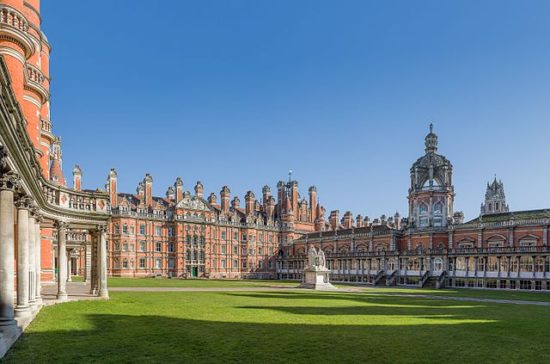
At Royal Holloway (RHUL), Professor of Classics J. H. Sleeman worked on Neoplatonism and late ancient philosophy (1922-46); he published numerous notes on the text of Plotinus before any critical edition existed, while his substantial lexicon to Plotinus (Lexicon Plotinianum) was published many years after his death, in 1980. Sleeman’s chair at RHUL was taken over by Hugh Tredennick (1946-66), who is remembered for his Loeb Classical Library editions of Aristotle’s Metaphysics and Prior Analytics and for his Penguin translation, The Last Days of Socrates (1954).
During the 1940s and 1950s the renowned scholar of Buddhist philosophy Edward Conze was based in London, making a living as a lecturer in the Extramural Department of the University of London. This has since merged with Birkbeck and is now Birkbeck’s Faculty of Continuing Education. During this period the prolific Conze produced multiple books on Buddhism, including translations of The Diamond Sutra and The Heart Sutra (1958), as well as an anthology of Buddhist texts for Penguin Classics (1959). His preference for adult education stemmed from both his socialist principles and advice he received from another celebrated scholar of Buddhism: ‘D. T. Suzuki had repeatedly warned me against becoming anything else but a “Visiting Professor”, because of the burden of administration attached to the more permanent jobs.’
Sanskrit and Buddhism scholar John Brough taught at SOAS, 1946-67. While his scholarly output was not predominantly philosophical, his work included seminal contributions on the topic of Indian theories and philosophies of language, chiefly ‘Audumbarâyana’s Theory of Language’ (1952) and ‘Some Indian Theories of Meaning’ (1953). The year 1950 saw three consequential appointments at SOAS. Sinologist Angus Graham, who taught at SOAS until his retirement in 1984, was known both for his English translations and his work on ancient Chinese logic and argument, including Later Mohist Logic, Ethics and Science (1978) and Disputers of the Tao: Philosophical Argument in Ancient China (1989). D. C. Lau, after reading philosophy at Glasgow as one of the first students from Hong Kong to travel to the UK following the second World War, joined SOAS at the same time as Graham and remained there for nearly 30 years, before moving back to the University of Hong Kong, his alma mater, in 1978. His scholarship is distinctive in its application of methods and approaches characteristic of 20th-century ordinary language philosophy to Classical Chinese texts. He is most widely known for his popular Penguin translations of Tao Te Ching (1963), the Mencius (1970) and the Analects of Confucius (1979), which have played an important role in introducing Classical Chinese philosophy to Western audiences. Finally, David Lazar Friedman, after losing his position in Leiden as a Jew in 1940 and lecturing for some years in New York and Jakarta, taught and researched Sanskrit, Buddhist Philosophy and Indian art at SOAS (as well as KCL), 1950-70.
At LSE, famous philosopher of science Karl Popper, Professor from 1949-69, had interests in both Plato and the Presocratics; his well-known essay ‘Back to the Presocratics’ was read in London to the Aristotelian Society in 1958-59. Bernard Williams, another immensely influential philosopher and a trained classicist whose writings were animated by reflection on the history of philosophy and often by close engagement with the ancient Greeks, taught at UCL from 1959 until 1964, before moving to Bedford College, where he remained until 1967.
At Queen Mary College, R. S. Bluck taught Classics, 1953-59. Among his many publications on Plato, it was while in London that he produced his translation and commentary on the Phaedo (1955). Also at Queen Mary, David Balme taught Classics from 1957 to 1978. His inaugural lecture as Professor in 1965 was on ‘Aristotle’s Use of Teleological Explanation’ and he has been credited with playing a pivotal role in the revival of interest in Aristotle’s biological works. He translated some of On Parts of Animals and On Generation of Animals for the Clarendon Aristotle series and History of Animals for the Loeb Classical Library. In this period David Hamlyn was at Birkbeck, publishing his Clarendon Aristotle translation of the De Anima in 1968. He was also one of the founder members of the Southern Association for Ancient Philosophy.
The 1960s also saw the important beginnings of renewed attention to Hellenistic philosophy. David Furley, another co-founder of the Southern Association who taught at UCL 1947-66, started to work on Epicureanism, culminating in his Two Studies in the Greek Atomists (1967). Meanwhile, A. A. Long, also at UCL, ran a seminar on Stoicism at the Institute of Classical Studies (ICS) in 1967-68 that formed the basis for his Problems in Stoicism (1971). After leaving UCL (for Liverpool and then Berkeley), Long would go on to collaborate with his former UCL PhD student David Sedley (working at Cambridge and subsequently appointed Laurence Professor) on the hugely consequential sourcebook and commentary, The Hellenistic Philosophers (1987).
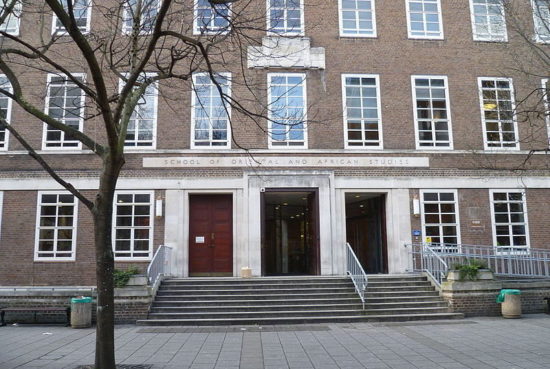
Over at SOAS, Tuvia Gelblum worked on Indian philosophy and religion, 1968-93. He is especially known for his 25-year collaborative study, with Shlomo Pines, of al-Bīrūnī’s 11th-century Arabic translation of the ancient Yoga Sūtras of Patañjali, a fundamental text of ancient Yoga philosophy. Sinologist Paul Thompson joined SOAS from Wisconsin in 1970 and taught there until his retirement in 1996. It was in London that he produced his critical edition, The Shen Tzu Fragments (1979). Fellow Sinologist Sarah Allan was appointed at SOAS in 1972 and taught there for 23 years, before leaving for Dartmouth in 1995. She is known for her interdisciplinary analyses of ancient Chinese mythological and philosophical thought, prominent in her The Heir and the Sage: Dynastic Legend in Early China (1981) and The Shape of the Turtle: Myth, Art, and Cosmos in Early China (1991). In collaboration with Chinese historians, she was instrumental in making early Chinese materials in Western collections available to researchers working in China. Through the efforts of Thompson and Allan, as well as Angus Graham and D. C. Lau, SOAS became a renowned centre for the study of Chinese philosophy during this period (as Roger T. Ames writes in his obituary of Lau).
Also in London at this time was Russian dissident and intellectual celebrity Alexander Piatigorsky, who worked in SOAS from 1975 until his retirement in 2001. Piatigorsky’s output ranges from introductions to Buddhist philosophy to the first Russian-Tamil dictionary, a study of Freemasonry, and philosophical novels. His best-known philosophical work, Symbol and Consciousness (1982) – co-written in Russia with Merab Mamardashvili and smuggled into London from behind the Iron Curtain – presents, as Tudor Parfitt puts it in his obituary of Piatigorsky, a kind of philosophical conversation between the two authors from the dual perspectives of Husserl’s phenomenology and Vijñānavāda Buddhism.
Myles Burnyeat, after concluding his graduate studies at UCL under the supervision of Bernard Williams, succeeded Williams at UCL and lectured there from 1964 to 1978, before moving to Cambridge (eventually becoming Laurence Professor) and then to Oxford. Richard Sorabji joined KCL in 1970 and, over the course of his long career in London, would publish numerous impactful books on many aspects of 1200 years of ancient Greek philosophy and its later transmission. The early 1970s saw Burnyeat and Sorabji jointly teaching ancient philosophy for the intercollegiate degree. Burnyeat ran a London seminar from 1975-82 on Aristotle’s Metaphysics Zeta, Eta, and Theta, the record of which was subsequently published in two volumes by the Oxford Philosophy Faculty. In the late 1970s Sorabji added late ancient philosophy to the University of London curriculum, which he taught with R. W. Sharples (UCL). Sharples had already been doing pioneering work on the Aristotelian commentator Alexander of Aphrodisias, research that would extend into other areas of post-Classical Peripatetic thought. In 1985 Sorabji inaugurated the Ancient Commentators on Aristotle project, initially funded by the National Endowment for the Humanities, and subsequently by the UK Arts and Humanities Research Council, The British Academy, The Leverhulme Trust, and the A. G. Leventis Foundation. This audacious project aimed to translate into English, often for the first time, the largest surviving body of ancient Greek literature: the late ancient Greek commentators on Aristotle. Publishing its first volume in 1987, it reached its hundredth volume a quarter of a century later, in 2012. Sharples contributed multiple volumes of translation of Alexander’s commentaries to the series. Alan Lacey, who was initially placed at Bedford College before moving to KCL with the other Bedford philosophers in 1985, also produced a volume for the series, as did Furley and other ancient philosophers in London. The project generated numerous post-doctoral positions in late ancient philosophy, with over twenty people holding posts in the project’s editorial office over the years.
Meanwhile, the study of ancient Indian and Buddhist philosophy in London grew in new directions. Tadeusz Skorupski, known particularly for his work on Tibetan Buddhism, joined SOAS in 1978 and authored, among other works, The Six Perfections (2002) and Practices Conducive to Enlightenment (2009). In 1981 Damien Keown joined Goldsmiths, University of London, and became a prominent voice in the field of Buddhist ethics, spanning both historical interpretation and modern applications. Among other works, he authored The Nature of Buddhist Ethics (1992) and Buddhism and Bioethics (2001), and in 1994 co-founded The Journal of Buddhist Ethics. Fr Michael Barnes, a Buddhism expert and Jesuit priest teaching at Heythrop College 1981-2017, authored numerous works on interfaith dialogues and affinities of theological and philosophical thought across different religions (including Christianity, Buddhism, Hinduism, Judaism and Islam) from a broad historical perspective.
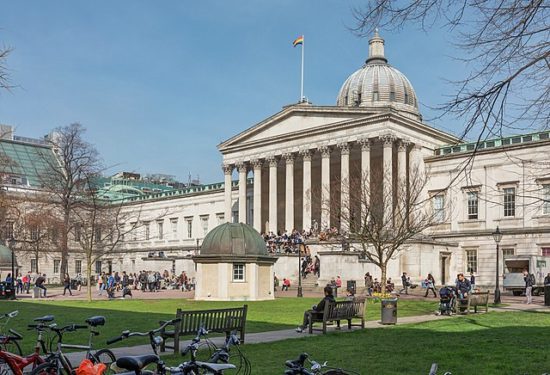
Robert Heinaman, a Plato and Aristotle expert, joined UCL in 1980. Together with Sharples, and thanks to the generosity of an anonymous donor to UCL Philosophy, Heinaman organised the first annual Keeling Memorial Lecture in Ancient Philosophy in 1981. After another gift from the donor in 1994, Heinaman also organized the first Keeling Colloquium in 1994. The Keeling Lectures and Colloquia have been regular fixtures in the London calendar ever since, and by 2020 have resulted in the publication of ten volumes of papers on various topics in ancient philosophy. It was also since 1994 that the ICS has, in addition to the annual seminar series in ancient philosophy, began to host the Sheila Kassman Memorial Address, given by an internationally renowned scholar on a topic in ancient philosophy or medicine.
In 1988 Mario Mignucci, Professor at the University of Padua and expert in ancient Greek logic, was elected Research Fellow in KCL, a position that he retained from 1988 until 2000. Upon his death in 2004, his sizeable and rare collection of scholarship in ancient philosophy (some 7,000 items strong) was donated to KCL, where it resides as the Mignucci Collection.
Michael Trapp was first appointed lecturer at Birkbeck in 1984, before moving to KCL in 1989. Over at the Warburg Institute, Jill Kraye, appointed lecturer in 1987, published widely on, among other things, the receptions and appropriations of ancient philosophers among Renaissance writers. In 1989 Anne Sheppard arrived at Royal Holloway, while in 1990 Lacey retired from KCL and was replaced by Mary Margaret (‘MM’) McCabe, who had arrived from Cambridge. In 1991 McCabe established a Greek reading group for staff and graduate students in London, ‘The Greek Text Seminar’, which remains a staple of the termly calendar to this day. The first text read was the Peripatetic treatise On Melissus, Xenophanes and Gorgias. The 90s and early 2000s saw further appointments to permanent positions in ancient Greek philosophy – Anthony Price (Birkbeck), Verity Harte (KCL, subsequently Yale), Andy Gregory (UCL) and Ursula Coope (Birkbeck, subsequently Oxford) – as well as extended appointments for Tad Brennan (KCL, subsequently Cornell) and Frisbee Sheffield (KCL, subsequently Cambridge).
A generous bequest in 1991 led to the establishment in KCL of the Matilal Trust. The trust aims to promote the work of Bimal Krishna Matilal, eminent scholar of Indian Philosophy, ‘by making Indian Philosophy accessible to the general philosophical community’. The Trust funds KCL’s Matilal Lectureship, held since 2004 by Will Rasmussen, whose expertise ranges over both ancient Indian and ancient Greek philosophy. Rasmussen was preceded in the teaching of Indian Philosophy at KCL by Jonardon Ganeri, who subsequently returned to London as Visiting Professor at KCL (2014-17) and Professorial Research Associate at SOAS (2012-20), Joseph Sen, later a lecturer at City University London, and Mark Siderits. The 90s also saw the appointment of Sue Hamilton at KCL. Hamilton produced a number of important studies – including Identity and Experience: The Constitution of the Human Being according to Early Buddhism (1996) and Early Buddhism: A New Approach (2000) – before leaving the profession. In the area of Sinology, Bernhard Fuehrer joined SOAS from Bochum in 1996 and worked there until he retired in 2020. The author of a number of books on the history and methodology of Sinology, Fuehrer also published many articles on philosophy and religion in pre-Qin texts, including the Analects of Confucius. It was during this same period that Christopher Cullen, scholar of ancient Chinese astronomy, mathematics and medicine, worked at SOAS (1988-2003).
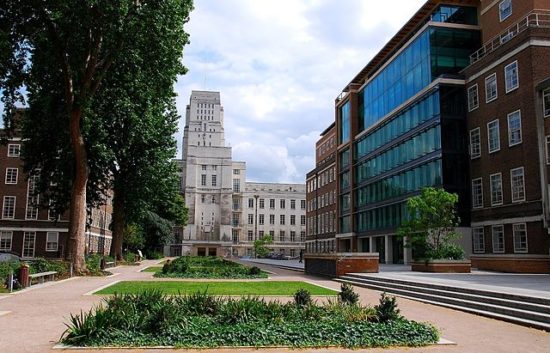
Sorabji was Director of the ICS, 1991-96. He retired in 2000 and in 2014 would be knighted in recognition of his major contributions to philosophical scholarship. Upon Sorabji’s retirement he was replaced at KCL by Peter Adamson, a scholar of both late ancient Greek philosophy and Arabic philosophy who, in addition to his many books and other publications, would go on to launch in 2010 the highly acclaimed and popular podcast History of Philosophy without any Gaps which would surpass 29 million downloads by 2020. The proceedings of an international conference held in 2002 in Sorabji’s honour at the ICS were published as Philosophy, Science and Exegesis in Greek, Arabic, and Latin Commentaries (2004, co-edited by Adamson). Other international conferences on late ancient philosophy held in the ICS during the 90s and 2000s laid the foundations for the three-volume sourcebook The Philosophy of the Commentators, 200-600 AD (2004, edited by Sorabji) and Greek and Roman Philosophy 100 BC – 200 AD (2007, edited by Sharples and Sorabji). Plans were laid for a related series of sourcebooks and Sharples’ own contribution, Peripatetic Philosophy 200 BC to AD 200, was published in 2010, just before his untimely death. Another key player at the ICS and in the revival of the study of late ancient philosophy in London was Sheppard who, in addition to her single-authored publications in this area, edited or co-edited a number of volumes developed from ICS workshops and conferences, including Ancient Approaches to Plato’s Timaeus (2003, with Sharples) and Ancient Approaches to Plato’s Republic (2013). Another series of international seminars at the ICS led to Aristotle and the Stoics Reading Plato (2013), edited by Harte, McCabe, Sharples and Sheppard. Meanwhile, Sheppard’s interests in the interrelations of literature and philosophy (e.g. The Poetics of Phantasia: Imagination in Ancient Aesthetics 2014) echoed those of Michael Trapp. Many of Trapp’s publications straddle traditional disciplinary divides and explore the interactions between philosophy and its cultural and literary contexts in post-Classical Graeco-Roman antiquity, an approach evident in his wide-ranging book Philosophy in the Roman Empire (2007). Trapp is also known for his contributions to the study of the reception of Socrates from antiquity to the modern world, especially his two edited volumes of 2007: Socrates from Antiquity to the Enlightenment and Socrates in the Nineteenth and Twentieth Centuries.
At the same time, the study of Plato and Aristotle, which traces back to the origins of the University of London, continued to grow unabated in new directions. McCabe pioneered new approaches to the development of Plato’s metaphysics (Plato’s Individuals 1994) and to his notion of philosophical conversation and philosophy as conversation (Plato and his Predecessors: the Dramatisation of Reason 2000, Platonic Conversations 2015), and founded and edited the Cambridge University Press series, Cambridge Studies in the Dialogues of Plato: a series of monographs each devoted to a single dialogue of Plato, approached as a philosophical and literary whole. Other major studies included Price’s Love and Friendship in Plato and Aristotle (1989), Mental Conflict (1995) and Virtue and Reason in Plato and Aristotle (2011), Harte’s Plato on Parts and Wholes: the Metaphysics of Structure (2002) and Coope’s Time for Aristotle: Physics IV.11-14 (2005). Meanwhile, the study of ancient Greek and Roman science and scientific philosophy in London was energised through the efforts of Gregory, whose many books include Plato’s Philosophy of Science (2000) and Ancient Greek Cosmogony (2007), and Serafina Cuomo (appointed at Birkbeck in 2007, before leaving for Durham in 2017), a scholar of Graeco-Roman mathematics and technology (Ancient Mathematics 2001, Technology and Culture in Greek and Roman Antiquity 2007). In 2005 Gregory founded the London Ancient Science Conference, which, from its humble beginnings, grew into a major annual event drawing to London numerous scholars working on all aspects of ancient science from across the Mediterranean.
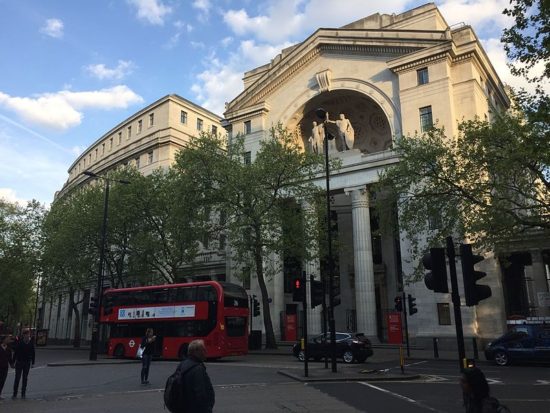
The new millennium also saw the arrival at the University of London of two prominent classical scholars, whose work ranges over ancient philosophy as well as other aspects of Greek and Roman culture. Catharine Edwards, a scholar of Roman cultural history and literature with a particular interest in the Younger Seneca, came to Birkbeck from Reading in 2001. Edith Hall, whose wide-ranging publications on Greek antiquity and its later reception often explore the connections between philosophical writings and other genres, moved from Durham to Royal Holloway in 2006 and then to KCL in 2012. Also in 2006 Harte left for Yale, to be replaced by Raphael Woolf, who arrived from Harvard and whose work ranges over Plato, Aristotle and Hellenistic philosophy and includes a monograph on Cicero (Cicero: The Philosophy of a Roman Sceptic 2015) as well as translations of both Greek and Roman texts (De Finibus 2001, Eudemian Ethics, with Brad Inwood 2013). Following her departure, Harte retained close links with London. In 2007 Harte and McCabe began running an annual week-long seminar that read and discussed one book of Plato’s Republic each year, held in alternate years at KCL and Yale. Ancient philosophers and graduate students at KCL and UCL were regular participants, along with those from Yale and other international scholars specialising in Plato’s work. After the seminar series concluded in 2016, McCabe organised in 2019 a conference (hosted in Edinburgh and funded by the A. G. Leventis Foundation) with many of the same participants, laying the ground for an edited volume, Rereading the Republic. The title gestures towards Rereading Ancient Philosophy, a volume edited by Harte and Woolf (2017), stemming from a 2014 conference organised in McCabe’s honour (and successfully revealed as a surprise to her only at the last minute).
Miriam Leonard, an expert in the receptions of classical antiquity in modern European thought whose work often pursues philosophical themes and materials, joined UCL in 2007 and soon after published her books How to Read Ancient Philosophy (2008) and Socrates and the Jews: Hellenism and Hebraism from Moses Mendelssohn to Sigmund Freud (2012). Also in 2007 Heinaman retired from UCL, replaced in 2009 by Fiona Leigh, an expert in Plato’s metaphysics, epistemology and philosophy of mind, who had arrived in London in 2007 to work on the Ancient Commentators project at KCL. The Keeling Lectures were supplemented with an associated graduate masterclass in 2012, and since 2014 a Keeling Scholar-in-Residence has been appointed each year. A further generous bequest to UCL Philosophy by the anonymous donor in 2014 led to the establishment in 2016 of the Keeling Centre for Ancient Philosophy, honouring the memory of UCL philosopher S. V. Keeling, who believed strongly in the value of ancient philosophy, and wanted to promote its activity at UCL and in London more widely. Leigh is the Director of the Keeling Centre, which, in addition to the Memorial Lecture, masterclass, and Colloquia, organises and runs small workshops in ancient philosophy, appoints a post-doctoral Keeling Research Fellow every 4-5 years, funds a Graduate Conference in ancient philosophy, hosts occasional academic visitors, and each year offers Keeling Scholarships to graduate students in ancient philosophy. A Keeling workshop organised with Yale in 2017 initiated LOXY, a biennial gathering of staff and students from London, Oxford and Yale to discuss work in progress. From 2020 a new series of Keeling Colloquia began to be published by Oxford University Press.
Meanwhile, new arrivals of scholars with meaningful interests in the area of ancient Indian philosophy took place. Vedic expert Theodore Proferes was appointed at SOAS, while Kate Crosby, an expert in both historical and current manifestations of Theravada Buddhism joined KCL in 2013 after previously teaching at SOAS. Andrew Skilton, a scholar of Buddhist literature and thought, was appointed Senior Research Fellow at KCL from 2011 to 2019. Finally, Yoga scholar James Mallinson joined SOAS in 2013 and in 2015-20 ran there a large collaborative project on the history of Hatha Yoga (funded by the European Research Council). His Roots of Yoga (2017), co-written with Mark Singleton, a Senior Research Fellow in the project, offers a collection with commentary of ancient and medieval Yoga texts on the practices as well as the conceptual and ethical philosophical underpinnings of Yoga.
In 2010 Sharples’ vacant position at UCL was filled by Jenny Bryan. It was during her time in London that Bryan published her monograph Likeness and Likelihood in the Presocratics and Plato (2012) before she moved on to Manchester and was replaced at UCL by Elena Cagnoli Fiecconi. Peter Adamson was appointed to a Professorship in Munich in 2012 (retaining a fractional appointment at KCL) and was replaced by Joachim Aufderheide. McCabe retired from KCL in 2014. She was subsequently named the inaugural Keeling Scholar in Residence at UCL (2014-17) and was appointed to the prestigious role of Visiting Sather Professor at Berkeley (2016-17). Upon Lacey’s death in 2016, part of his bequest, given for the promotion of ‘philosophy in the world’, was used towards the foundation in 2018 of Philosophy in Prison. This charity, in whose formation McCabe played a leading role alongside former KCL ancient philosophy PhD student Mike Coxhead, aims to use philosophical dialogue to engage prisoners of varying educational and cultural backgrounds.
Price retired from Birkbeck in 2016, replaced by Sophia Connell in 2017, while, at about the same time, Peter Singer joined Birkbeck as a Wellcome Fellow in Medical Humanities. Sheppard retired from RHUL in 2017, replaced by John Sellars, who had worked on the Ancient Commentators project at KCL, 2003-7, lectured at Birkbeck, 2012-14, and returned to the Ancient Commentators, 2014-17. Since 2012 further appointments in London have included Shaul Tor (KCL), Liz Gloyn (RHUL), Amanda Greene (UCL), Simona Aimar (UCL), Daniel Orrells (KCL), Nilanjan Das (UCL), David Preston (RHUL) and Karen O’Brien-Kop (KCL). An intellectual but not physical new arrival at London ancient philosophy occurred when the interests of long-time UCL philosopher Mark Kalderon took a welcome turn towards the ancient Greeks. Further information about the more recent arrivals can be found in the People section of this website.
Fiona Leigh (fiona.leigh@ucl.ac.uk)
John Sellars (john.sellars@rhul.ac.uk)
Shaul Tor (shaul.tor@kcl.ac.uk)
